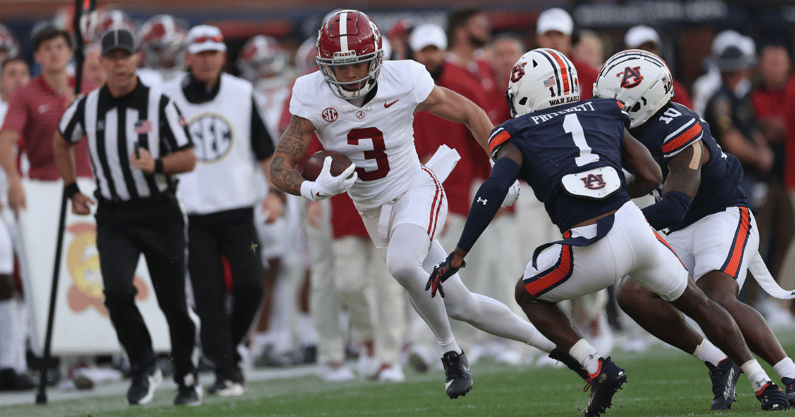Alabama bill would exempt NIL dollars from income tax

Alabama has become the latest state to introduce a bill that would create a competitive advantage for its collegiate athletes. Alabama state representative Joe Lovvorn introduced legislation in the House on Tuesday that would make NIL earnings exempt from Alabama’s individual income tax.
The move follows a similar bill popping up in the Georgia state Senate earlier this month. Alabama currently has a state income tax with rates ranging from 2% to 5%. This bill would also put Alabama and Auburn on equal footing, as Tennessee, Florida and Texas are SEC states with no income tax.
Alabama state representatives Danny Garrett and Chris Blackshear helped write the bill, too. If enacted, the legislation would go into effect on Oct. 1, 2025, and would be applied retroactively to Jan. 1, 2025, while remaining in effect through 2027.
Alabama is just the latest state to craft a bill that would put its universities and athletes at an advantage against the NCAA. Institutions across the country are operating under a patchwork of state laws. Lawmakers in Missouri and Texas have passed bills in recent years to prevent the NCAA from launching investigations into NIL activities. Missouri’s NIL law even allows high school recruits to enter into NIL deals and start earning endorsement money as soon as they sign with in-state colleges.
Top 10
- 1New
Baseball Top 25 projection
Massive Top 10 shakeup
- 2Hot
Georgia scores big
Kirby nabs 3 transfers
- 3Trending
David Stone
5-star frosh makes abrupt about face
- 4
Nate Ament
Vols land 5-star
- 5
Jaden Rashada
To visit ACC school
Get the On3 Top 10 to your inbox every morning
By clicking "Subscribe to Newsletter", I agree to On3's Privacy Notice, Terms, and use of my personal information described therein.
NCAA President Charlie Baker and college sports leaders continue lobbying lawmakers on Capitol Hill for a federal NIL bill. Meanwhile, the House v. NCAA settlement is expected to start on July 1 but has to earn final approval this spring. Institutions will share $20.5 million in Year One of revenue sharing, with most Power Four schools expected to share $15 to $17 million on their football rosters.
If college athletes in Alabama can land a state income tax break, it provides a competitive advantage in recruiting.